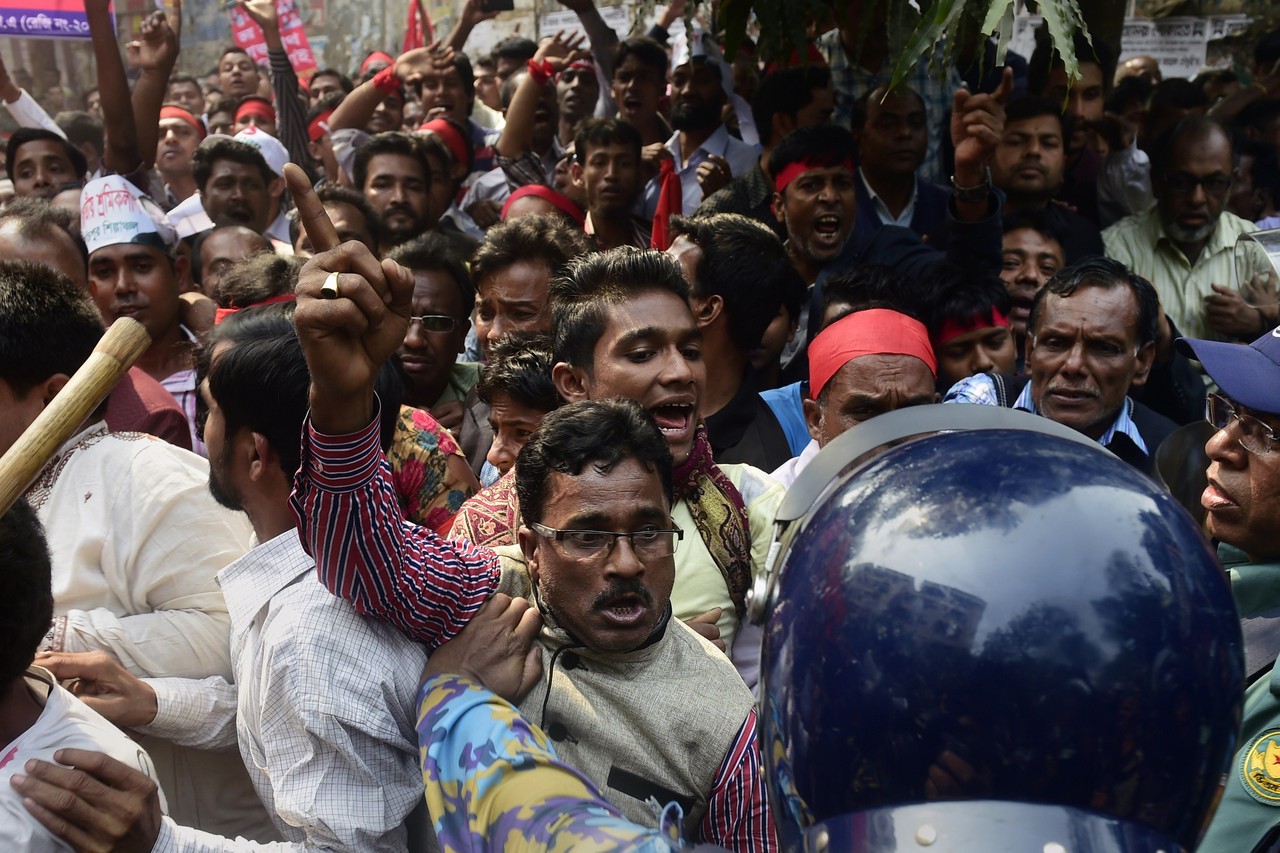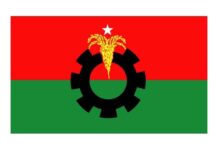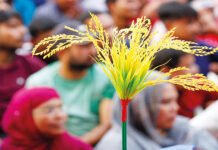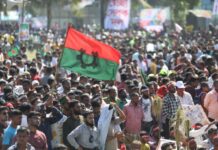Prime Minister Sheikh Hasina and longtime rival Khaleda Zia have shown no signs of backing down
Last week, as violence escalated here, workmen reinforced the headquarters of the opposition Bangladesh Nationalist Party, adding coils of barbed wire to the eight-foot-high walls surrounding the compound.
Feuding between two top politicians has thrown parts of this country into upheaval, with street clashes, firebombings and shootouts killing more than 80 people since early January, and raised doubts about Bangladesh’s ability to sustain recent economic gains.
More than 20 opposition activists have been killed in encounters that police describe as shootouts, but some human-rights groups say they are extrajudicial killings.
The escalating violence over the past month stems from a dispute over the legitimacy of last year’s national election, which was boycotted by opposition parties. Prime Minister Sheikh Hasina and her Awami League have shown no signs of backing down, nor has her longtime rival, Khaleda Zia, leader of the opposition Bangladesh Nationalist Party.
Ms. Zia has urged her supporters to protest against the administration with general strikes and blockades of all road, rail and waterborne traffic, saying government restrictions on other forms of dissent leave them with no other options. The government has imprisoned thousands of opposition supporters.
In a recent statement, Ms. Zia, a former prime minister, said she was fighting to prevent Ms. Hasina and the Awami league from introducing “one-party rule with the trappings of democracy.”
Ms. Hasina has denounced the BNP leader as a “murderer and terrorist,” and blamed the opposition for more than 50 deaths that resulted from attacks on public transport since the turmoil began. “We must defeat the terrorists,” she said in Parliament last week.
The BNP has denied responsibility for the deaths and accuses pro-government provocateurs of trying to sabotage its movement by instigating violence.
Fueling the violence is a mix of personal animosity between the two leaders and deep divisions over national identity in this Muslim-majority country, which won independence from Pakistan in 1971.
“There are hard-liners on both sides who think no compromise is possible,” said Nurul Amin, a political analyst at North South University in Dhaka. “What we’re seeing is the politics of annihilation.”
Although Bangladesh is a moderate Muslim country, some experts say extremist messages may gain wider acceptance if the democratic order is undermined.
The BNP is allied with the Islamist Jamaat-e-Islami party, which sided with the Pakistani government and opposed the creation of a separate Bangladesh in 1971. Nine members of Jamaat-e-Islami have been convicted in war-crimes trials initiated by Ms. Hasina.
Jamaat leaders say the party accepted Bangladesh’s independence after 1971 and has been part of the nation’s electoral politics since the 1980s. The ruling party says the Jamaat should be banned for its role in 1971.
Ms. Hasina, the daughter of assassinated Bangladeshi independence leader Sheikh Mujibur Rahman, has long had a bitter relationship with Ms. Zia, the widow of a military commander who founded the BNP and was president of Bangladesh before being killed by disgruntled army officers.
The two women, who have traded places at the head of Bangladesh’s government for decades, are often referred to by Bangladeshis as “Battling Begums.” Begum is an honorific for a married woman in the local Bangla language.
Both Ms. Hasina and Ms. Zia have used violent protests, including strikes and blockades, when in opposition. When in power, they have condemned such tactics as terrorism. Their confrontational style and mutual distrust are now threatening to turn back the clock on political and economic progress, some political observers say.
Ms. Hasina and Ms. Zia have “acted as partisan authoritarians who divided the country into two warring camps,” said Badiul Alam Majumdar, general secretary of Bangladesh nonprofit Citizens for Good Governance. “Our institutions have been undermined and civil society has been divided.”
The current bout of violence began on Jan. 5, when the government banned an opposition protest called to mark the anniversary of last year’s national elections. Police arrested dozens of senior BNP leaders and prevented Ms. Zia from leaving her office more than two weeks.
Police said they were providing extra protection for Ms. Zia.
The turmoil has disrupted the country’s supply chain and hurt its $24 billion -a-year garment industry, with production dropping by as much as 30%, according to one industry group estimate. The economy is creaking under the strain. Moody’s last week hinted at a credit downgrade for Bangladesh, warning that prolonged political unrest was weighing on its export performance and headline growth.
Source: The Wall Street Journal











We cannot expect anything from these battling Begums who are bent on destroying the country. What do we do then?? Who is going to sound the whistle? Is this a country of cowards who have no guts to stand up for the truth and get it straight for once?